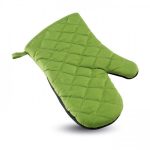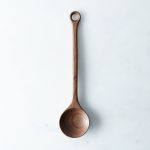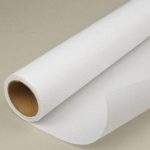
Q: After a couple years of heating and cooking in a microwave, we finally question ourselves whether it’s safe to microwave water. The oven helps us to heat up food or quickly prepare individual ingredients for more complex recipes such as melted chocolate, softened butter or ice cream. But what if you decided to make tea or coffee fast and you need a cup of boiled water? The microwave might seem to be faster than a regular kettle or pan. But there is so much controversial information on the Internet. Let’s see if it’s really so scary to heat or boil water in the microwave oven.
How to Boil Water in the Microwave?
Microwaves are very handy not only in the kitchen but at a hotel, a hospital or a dormitory. As long as they differ in size and capacity, each device is individual so you should be very cautious about safety of microwaving some materials like water. Read the labels attentively; study the manual to discover if your device has an option of microwaving water.
To make a long story short, it is possible to microwave water. For example, when you are sterilizing jars you pour a little water in them. Or when you are making tea, you may also place your glass mug with water in the microwave for a minute or so. At the same time, microwaving water is dangerous.
The matter is that the microwave doesn’t heat up water evenly and you won’t obviously see the bubbles. Water can be easily overheated to 120-150 degrees. Then, when you take out the glass of water from the microwave, the liquid can splash out right on your hands or into your face due to the rapid change of temperature.
The difficult thing can get simple if you follow these steps:
- Choose the right cookware designed specifically for the microwave. If in doubt, check the labeling (choose glass, ceramics, waxed parchment paper or microwave safe plastic/styrofoam)
- Don’t cover the container with water, because hot steam may cause explosion
- Put a non-metallic object (e.g. a popsicle stick or any other wooden stick or spoon) into the cup (this will prevent water from overheating and promote bubbling)
- Preheat the water for no more than 1 minute until the steam emission begins
- Take the container out of the microwave using gloves or a potholder
Now you can make tea or coffee or use the water for any other purposes.
What If I Use Unsuitable Dishes to Microwave Water?
If you choose to microwave water in a dish other than the above mentioned, be aware of some troubles that may occur:
- Uneven heating
- Melting utensils. Cups for yogurt or margarine can melt and ignite, while releasing toxins
- The dishes may shatter
- Most metals, including aluminum and silver, can start to spark when heated, and this can damage the device and set it on fire
- The occurrence of an electric arc
- Sealed containers can explode under the pressure of hot steam
Now you understand that heating or boiling water in the microwave can be really dangerous.
These facts support the idea that water behaves unpredictably in the microwave if you ignore some precautionary measures.
How to Microwave Pasta?
There’s nothing easier than cooking pasta which requires boiling it in a bowl of water. Can we cook pasta in the microwave? Won’t the water boil out or heat unevenly so the pasta will be just disgusting? What’s the right way to microwave pasta?
The microwave oven is a good thing to use at cooking pasta when you are in a hurry and your stove is so slow that it takes you 10-15 minutes to boil water and then other 20 minutes to cook pasta in it.
Now you will learn a completely safe method of cooking macaroni products in the microwave.
- Take a large heat-resistant bowl, preferably a glassware
- Fill it with a cup of pasta
- Pour 1.5-2 glasses of water (pasta must be 2-3 cm deep)
- It’s much faster if you boil water in the microwave first
- Cook at full power for 6 minutes
- Take it out (make sure you use a towel or a potholder – the bowl is very hot!) Stir and check if the pasta is ready
- If not, give it a few more minutes
- Drain the water and add your favorite sauce, flavoring or cheese
As a matter of fact, thanks to the particular qualities of boiling water in the microwave, pasta won’t boil away which often happens on the stove.



